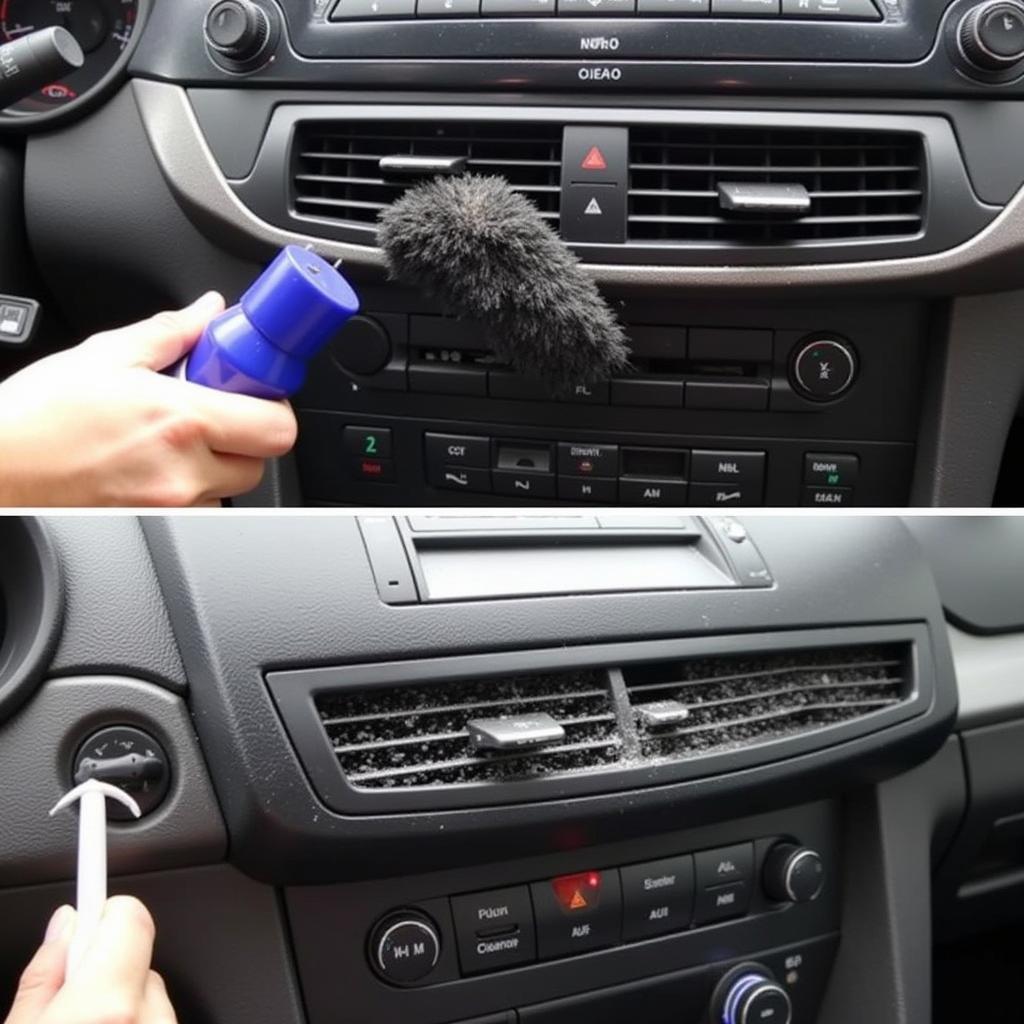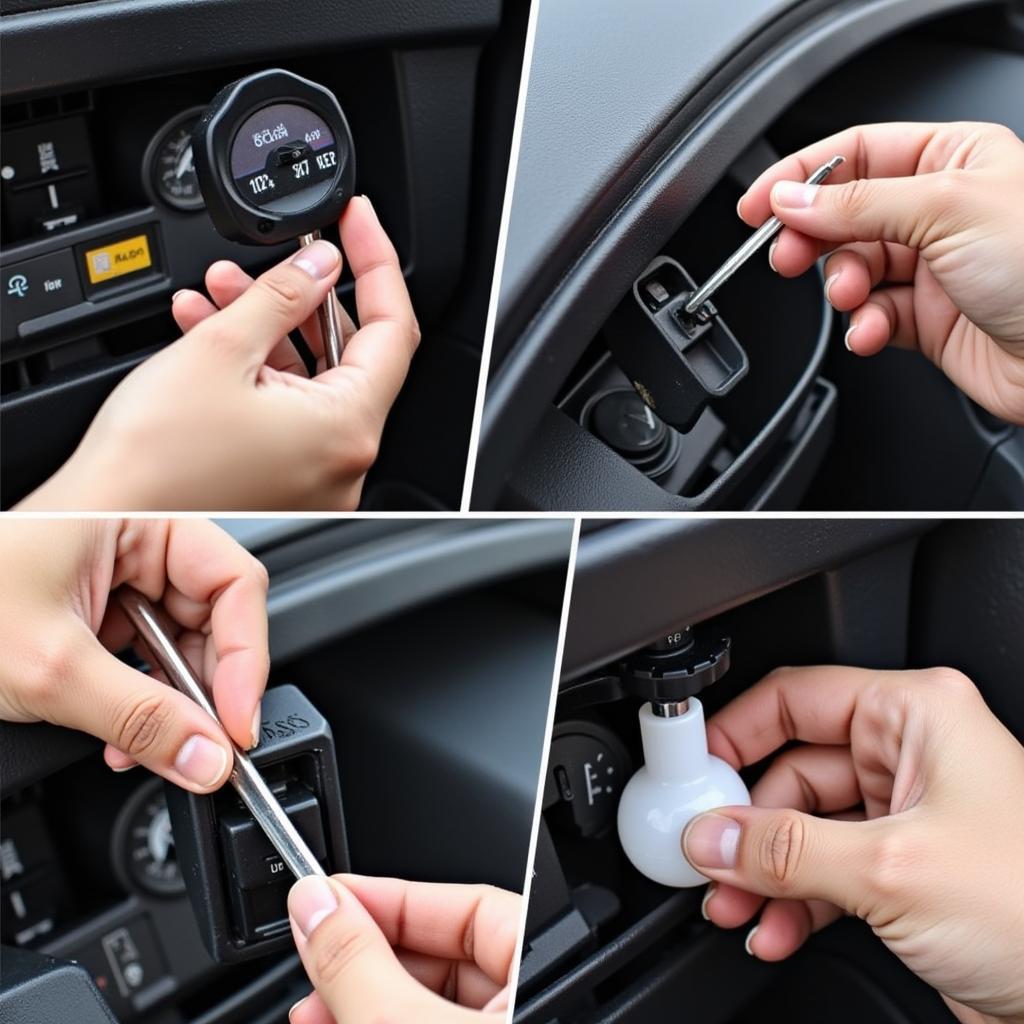A failing camshaft sensor can cause a range of issues in your BMW, impacting performance, fuel efficiency, and even preventing the engine from starting. This article dives deep into the BMW camshaft sensor problem and how your car reacts to it, offering solutions and advice for owners, mechanics, and technicians.
Understanding the BMW Camshaft Sensor’s Role
The camshaft sensor is a vital component of your BMW’s engine management system. It monitors the position and speed of the camshaft, relaying this crucial information to the Engine Control Unit (ECU). The ECU uses this data to control fuel injection and ignition timing, ensuring optimal engine performance. A malfunctioning camshaft sensor disrupts this process, leading to various drivability problems.
BMW Camshaft Sensor Problem: Common Car Reactions
When a camshaft sensor starts to fail in a BMW, your car can exhibit several symptoms. These range from minor annoyances to major performance issues:
- Rough Idle: A rough or erratic idle is one of the earliest signs of a failing camshaft sensor. The engine may stumble or vibrate excessively at low speeds.
- Reduced Engine Power: You might notice a decrease in acceleration and overall engine performance. Overtaking or climbing hills might become more difficult.
- Poor Fuel Economy: A faulty camshaft sensor can disrupt fuel injection timing, leading to reduced fuel efficiency. You’ll find yourself filling up the tank more often.
- Stalling: The engine might stall unexpectedly, especially at idle or low speeds. This can be a safety hazard, particularly in traffic.
- Check Engine Light: The check engine light is a common indicator of various engine problems, including a faulty camshaft sensor. It’s crucial to get the code read by a diagnostic tool to pinpoint the issue.
- Difficulty Starting: In severe cases, a completely failed camshaft sensor can prevent the engine from starting at all.
Diagnosing a BMW Camshaft Sensor Problem
Diagnosing a camshaft sensor issue requires a systematic approach. While a check engine light is a good indicator, a proper diagnosis involves retrieving the specific diagnostic trouble code (DTC) using a BMW-compatible scan tool. This code pinpoints the exact nature of the problem and confirms whether the camshaft sensor is the culprit.
How to Fix a BMW Camshaft Sensor Problem
Replacing the camshaft sensor is usually the most effective solution. While it’s a relatively straightforward procedure, it’s essential to use the correct BMW-specified sensor for your specific model.
- Locate the sensor: Consult your BMW’s service manual for the precise location of the camshaft sensor.
- Disconnect the electrical connector: Carefully unplug the electrical connector from the sensor.
- Remove the sensor: Use the appropriate tools to remove the sensor from its housing.
- Install the new sensor: Install the new sensor, ensuring it’s securely seated in its housing.
- Reconnect the electrical connector: Plug the electrical connector back into the new sensor.
- Clear the DTC: Use a scan tool to clear the diagnostic trouble code.
Preventing Future Camshaft Sensor Problems
While camshaft sensors have a limited lifespan, proper maintenance can help prolong their life and prevent premature failure. Regular oil changes with the correct BMW-specified oil are crucial, as dirty oil can contaminate the sensor.
“Regular maintenance, including timely oil changes, is essential for the longevity of all engine sensors, including the camshaft sensor. Neglecting these crucial tasks can lead to premature failure and costly repairs.” – Hans Zimmerman, Senior Automotive Engineer
Conclusion: Addressing your BMW Camshaft Sensor Problem
A malfunctioning camshaft sensor can significantly impact your BMW’s performance and drivability. By understanding the symptoms, diagnosis, and solutions, you can effectively address this problem and keep your BMW running smoothly. Don’t hesitate to connect with us at AutoTipPro for further assistance. Call us at +1 (641) 206-8880 or visit our office at 500 N St Mary’s St, San Antonio, TX 78205, United States.
FAQs
- What does a camshaft sensor do in a BMW? It monitors the camshaft’s position and speed, providing critical data to the ECU for precise fuel injection and ignition timing.
- How much does it cost to replace a BMW camshaft sensor? The cost varies depending on the model and labor rates but typically ranges between $200 and $500.
- Can I drive my BMW with a bad camshaft sensor? It’s not recommended, as it can lead to further engine damage and reduced fuel efficiency.
- How long does a camshaft sensor last in a BMW? They typically last between 60,000 and 100,000 miles, but various factors can influence their lifespan.
- What are the symptoms of a bad camshaft sensor in a BMW? Common symptoms include rough idle, reduced engine power, poor fuel economy, stalling, a check engine light, and difficulty starting.
- How do I diagnose a bad camshaft sensor in a BMW? Use a BMW-compatible scan tool to retrieve the diagnostic trouble code (DTC) and confirm the issue.
- Can I replace a BMW camshaft sensor myself? Yes, it’s a relatively straightforward procedure for those with some mechanical experience. However, it’s crucial to use the correct BMW-specified sensor.






Leave a Reply